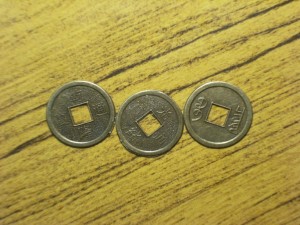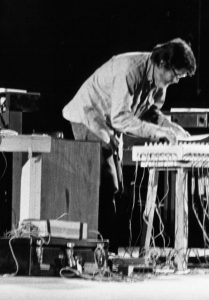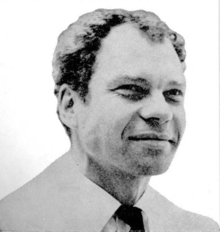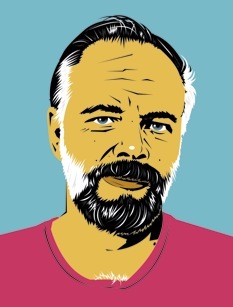What is the I Ching?
A collection of situations
Many of the texts written or compiled by the Duke of Zhou describe historical situations or maybe situations taken from tales that were known at this time. For example the line 5 of the hexagram 36 (which is noted 36.5) describes the situation of the Prince Chi who had to simulate madness to save his life. These situations make possible the association of ideas and thus can be used as landmarks in everyday life. Thus, we can act as with Prince Chi if we consider that the situation is serious enough.
A book of philosophy
It would be more precise to say it is a book of philosophies. The I Ching's influence on Taoism and Confucianism is undisputable. For example the notion of wu wei, the non-action so dear to Taoists can be found in the judgement of the hexagram 2:
If the superior man undertakes something and tries to lead, He goes astray; But if he follows, he finds guidance.
(translation by Richard Wilhelm and Cary F. Baynes) The Confucian philosophers are not left behind, Confucius is considered to have written himself the comments on the images and the text of the ten wings which come with the book. However they would naturally more rely on the images than the judgements. The themes covered can also come close to the western thought, compare for example the famous aphorism of Jean Anthelme Brillat-Savarin :
Tell me what you eat and I'll tell you who you are.
with this judgement of the hexagram 27:
Pay heed to the providing of nourishment And to what a man seeks To fill his own mouth with.
(translation by Richard Wilhelm and Cary F. Baynes)
A book of morals
If the judgements present objective situations, the images and the comments on the line have often a moral aspect. For example, the image of the hexagram 39:
Thus the superior man turns his attention to himself And molds his character.
(translation by Richard Wilhelm and Cary F. Baynes) We are invited to stop blaming others and to look within ourselves for the improvements that can be done.
A political book
The political advices that are found in the I Ching come, once again, essentially from the images and the comments on the lines. For example, with the comment of 19.3, we are told that once we have reached a situation of power, we need to redouble our vigilance and avoid getting too comfortable:
Comfortable approach. Nothing that would further. If one is induced to grieve over it, One becomes free of blame.
(translation by Richard Wilhelm and Cary F. Baynes)
An oracle
One of the specificities of the I Ching, is its use as an oracle. The texts are thus full of mantic formulas such as:
Great good fortune. Nothing that would not act to further.
(translation by Richard Wilhelm and Cary F. Baynes) These formulas, remainder of a period where people were looking for positive signs before launching a project, are questionable, including in their modern form, introduced by Cyrille Javary and Pierre Faure, which consist into renaming Fortune as Opening and Misfortune as Closing. They can be ignored, at least to begin with, not because they would be meaningless but because they contradict the ideas contained in the lines 16.1 (don't be too enthusiastic when starting a project) and 58.5 (speaking about misfortune can lead to discouragement). The challenge here is to preserve consistency, but ultimately it's your choice to consider them or not.
A divination book
These comments being oracles, it is natural to describe the I Ching as a divination book. It is indeed the original facet of the book, and many people consider it as such. Delaying this mention allowed me to present its lesser known facets. The I Ching oracles are traditionally obtained with yarrow sticks or money coins. Nowadays, the computers also give acceptable results.

The coins for consulting the I Ching
An inspiration source
John Cage (1912-1992)

John Cage, (c) Cunningham Dance Foundation archive, source Wikipedia
John Cage was an avantgarde composer who has created several pieces with the I Ching, the first of them being Music of Changes in 1951.
Merce Cunningham (1919-2009)
Merce Cunningham was an american dancer and choregraph who has used the I Ching to determine the organisation of his choregraphies In this interview he explains how he has discovered the I Ching.
Philip K. Dick (1928-1982)
Philip K. Dick is one of the most creative science-fiction authors. He has used the I Ching for this book, The Man in the High Castle. Despite his success, he had mixed feelings about his experience with the I Ching, he talks about it here.
One of the five chinese classics
Since the second century BC, the Chinese officials and militaries had to know five classic books (Jing) :
- The Classic of History(Shu Jing)
- The Classic of Poetry (Shi Jing)
- The Book of Changes (Yi Jing, I Ching or Zhou Yi)
- The Spring and Autumn Annals (Chūnqiū)
- The Classic of Rites (Li Jing)
If you are interested by the Chinese classics, you can find more informations on this site, specially the series of lectures in English by the Professor Edward Shaughnessy (with a French introduction).



